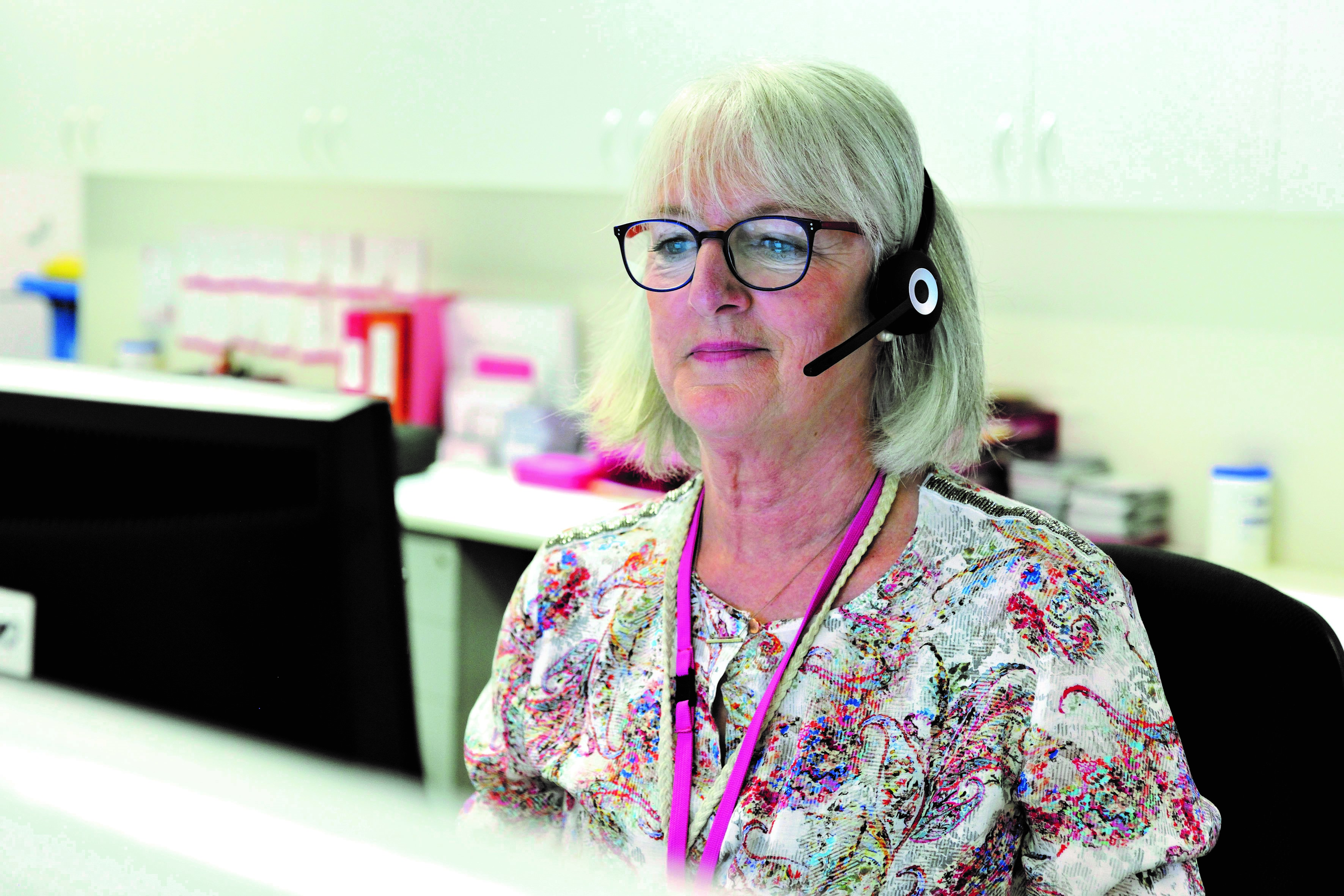
Covid-19 is one of the most challenging health epidemics of our modern era, and for people with suppressed immune systems it’s especially dangerous.
As the Australasian Society of Clinical Immunology and Allergy points out, people with compromised immune systems — sometimes referred to as immunocompromised — face a decreased ability to fight illness and disease, and this includes the highly contagious Covid-19.
People may have suppressed immune systems for many reasons: it could be as a result of immune-suppressant drugs, such as chemotherapy; drugs taken to lower the body's ability to reject a transplanted organ; or it could be due to a genetic immunodeficiency.
Particular breast cancer treatments are also known to reduce the strength of the immune system, which is alarming many women currently undergoing or recovering from treatment.
According to Breast Cancer Network Australia, treatments that may compromise the immune system include surgery, chemotherapy, those on a CDK 4/6 inhibitor and those undergoing certain types of radiotherapy (especially radiotherapy to the bones if you have metastatic breast cancer).
“Patients currently having these treatments are more prone to infections and are at a higher risk of becoming seriously ill if they contract the coronavirus,” Director of Policy and Advocacy at Breast Cancer Network Australia, Vicki Durston, tells MedAdvisor.
“It’s not only the treatment that increases their risk, but the continued hospital visits for tests and treatment, which also exposes those who are vulnerable.”
Prime Minister Scott Morrison has advised people aged over 70 years, those with chronic conditions over 60, and Indigenous Australians aged 50 years and older to stay at home and self-isolate vigilantly. Two cancer patients at The Alfred hospital in Melbourne have died after contracting the virus.
Breast Cancer Network Australia’s helpline has been inundated of late with queries about Covid-19, prompting the organisation to increase its hours to include weekends.
“Initially the calls related to understanding what the coronavirus was and how it may potentially impact those diagnosed, those in active treatment and those diagnosed many years ago with breast cancer,” Ms Durston says.
As new government changes came into effect, the theme of the calls started to change, too.
“Fear and anxiety related to exposure to the virus, practical issues related to being isolated, such as social distancing, and the ability to access basic needs is now starting to worry our members,” Ms Durston says.
Most recently, the phone calls are focused around people's ability to access treatment, how it’s going to impact them and whether they are at risk, Ms Durston notes.
“However, it’s important to note that being vulnerable and at risk doesn’t mean (automatically) abandoning treatment,” Ms Durston says.
“Patients should stay in regular contact with their treating team and make shared decisions.
“In some cases, pausing and stopping some treatments will not cause harm to patients.”
While each person’s circumstances are different, the good news is that there are some precautions you can take if you are immunocompromised. These include:
“If a patient undergoing active treatment becomes unwell it is important to identify your symptoms as a cancer patient of coronavirus,” Ms Durston notes.
“You should also self-identify as vulnerable and high-risk when attending hospital.
“If you are having active treatment and you are concerned you have symptoms of coronavirus, we ask people to not attend a public fever clinic, but to call their emergency department or treating team.”
The Australasian Society of Clinical Immunology and Allergy is also at great pains to point out that despite various claims, there are currently no recommended supplements or other agents that have been proven in conventional medical studies to boost immunity against infections such as COVID-19.
Instead, the Australasian Society of Clinical Immunology and Allergy recommends getting plenty of sleep, healthy eating, managing stress and regular exercise (while social distancing) will optimise immune system function.
Breast Cancer Network Australia’s Helpline (1800 500 258) will be open seven days a week from 9am to 5pm until further notice. An A Australasian Society of Clinical Immunology and Allergy COVID-19 Working Party has also been established to update information relating to measures for people who are immunocompromised. You can find that information here: https://www.allergy.org.au/members/covid-19
MedAdvisor is committed to playing an important role in helping you to keep track of your medications. Our medication management platform is focused on addressing the gap and burden of medication adherence. To know more click here.
This story was written by Johanna Leggatt. Johanna is an Australian journalist with more than 15 years’ experience in both print and online. She has worked across a wide range of subject areas, including health, property, finance, interiors, and arts.
These Stories on Medication Management
Suite 2 Level 7, 500 Bourke Street
Melbourne, Victoria 3000
Australia
Email us: support@medadvisor.com.au
MedAdvisor is an affiliate member of the World Pharmacy Council.
No Comments Yet
Let us know what you think